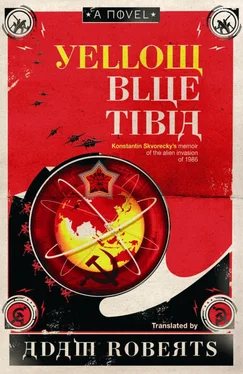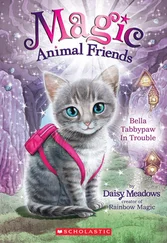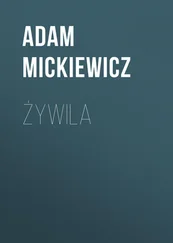Asterinov took a deep breath. ‘No, that was one of mine.’
I could not explain the strange feeling of relief that passed through me when he said this.
A bifurcated cloud the shape and colour of a walrus moustache muffled the sun, with others following. Soon it began to rain, a drizzle drifting like spindrift, and we hurried indoors.
7
The next day we spent writing. The story we were assembling was growing; the particulars of the aliens — a very horrible, insectoid race, implacably individualist and implacably hostile to social animals such as human beings. To begin with, our aliens were something like giant ants, but the objection was made that the idea of a ruthlessly individualist ant was a contradiction in terms. ‘That’s the horror,’ Sergei Rapoport insisted. ‘Horror depends upon some substantive contradiction, some paradox that outrages our sense of nature! A live man, or corpse, neither is horrific: but a living corpse — that scares us!’
‘You’re talking nonsense, Sergei,’ said Ivan Frenkel. ‘Ants live in big collective groups. Ants are communists. We need a solitary insect — a spider.’
‘Spiders are not insects,’ retorted Sergei.
‘Corpses can be scary,’ said Nikolai Nikolaivitch. ‘Not — living corpses,’ he added, and I realised he was not making a suggestion, but was instead wrapped in the coils of memory. ‘Dead ones.’
‘I propose we do not call our aliens insectoid,’ said Ivan, calmly. ‘We call them arachnoid.’
‘Yes, Jan ,’ said Sergei. ‘Let us do that, Jan .’ Frenkel coloured.
‘I have a better idea,’ I said. ‘Let us disembody them.’
‘Ghosts?’
‘Radiation aliens. Sentient emanations of poisonous radiation.’
The others contemplated this. ‘A little insubstantial, perhaps?’ offered Nikolai Nikolaivitch. ‘To be really scary, I mean?’
‘But they would have machines . As we have tanks and planes, they would have robots and killing machines; but inside — they would be only waveforms of poisonous radiation.’
This met with a general agreement.
We sketched their culture, the reasons for their assault, the nature of it. One sticking point was whether we confined the battles to space — announce to the world that Soviet rocket ships had been launched into orbit and were fighting off the foe up there; or whether we should report that aliens had landed.
‘We have agreed to blow up the Ukraine,’ Frenkel reminded us.
‘I assumed that would be a blast from space down to earth,’ said Asterinov.
‘No, no,’ insisted Frenkel. ‘People will not unite if the enemy is too far away. They won’t believe the threat. They must land.’
‘Like H. G. Wells’ Martians,’ said Kaganovich. ‘That would be better.’
‘Gherbert George,’ said Sergei, pouring himself some vodka. ‘Gh- hh -herberr Gyorgi.’ [1] The Cyrillic letter Г, sometimes transliterated into the Roman alphabet as ‘Gh’ and sometimes as an aspirated ‘H’, is idiomatic Russian slang for ‘shit’.
But nobody laughed.
‘Comrades, remember,’ said Kaganovich, holding up his hand. ‘Everything we do must ring true! The whole world must believe it!’
‘We will need props,’ said Frenkel. ‘Artefacts. Perhaps theatre professionals, or film makers, can construct devices that would pass inspection as alien technology. We must have film of the fighting.’
‘In the future,’ I put in, ‘who knows what advances there may be in the creation of specialised filmic effects.’
‘And, uniting all the evidence, our narrative of the ongoing struggle.’ Frenkel was heady with the possibility.
‘Cut up and sear together portions of flesh from various animals,’ suggested Kaganovich, eagerly, ‘and present them as slain alien bodies.’
‘You forget,’ chided Sergei. ‘We have agreed our aliens will be incorporeal beings’
‘How are we to kill them if they are incorporeal?’ said Kaganovich.
‘That’s easily arranged,’ Sergei insisted. ‘Make them… manifest, from time to time. Say they are linked to their machines, such that by destroying their machines we destroy them. Have them… possess certain individuals.’
We jotted it all down, and Asterinov typed it all up, and we filed it away in files.
8
We ate together, but the conversation did not flow naturally or easily. Often the only sound — I have heard it many times in my life and I have never encountered any other sound quite like it — was of people scraping metal bowls with spoons so as to leave no atom or morsel of edible material behind. We were civilised men. We had survived the Great Patriotic War, the severest and most heroic martial test ever endured by human beings. Because we were civilised we did not go so far as to lick our bowls, like dogs. But because we had lived through the war we knew to make the most of our bowls of stew, and not leave scraps or particles of food to waste. Therefore we scraped assiduously.
As he lit a cigarette Sergei said, ‘I will tell you what I think the cause of the uneasiness here is. Mistrust.’
We were all smoking. ‘Some of us are old friends,’ said Ivan Frenkel. He did not say this as if contradicting Sergei, but rather by way of confirming what he had said.
‘I’d like to suggest that we put the mistrust on one side,’ said Sergei. ‘I believe we have all been through — similar experiences. I, for instance, spent half a year being,’ and he took a long draw on his cigarette, ‘re-educated.’
We all looked at him. None of us asked ‘What was your crime?’ But the question was implicit.
‘I wrote a story. It was a simple enough story. There is a peasant called Aleksandr, and his wife, and their six children, and they live in a hovel. And one day Aleksandr meets a witch-spirit in the forest, a creature that takes the form of a great bird with wings of foliage and a green beak. But understand that this is a good witch-spirit. And anyhow, the witch-spirit promises Aleksandr that he will have wealth beyond measure if only he performs certain tasks for her — I’ll spare you the various specifics, and the ways I folded over the narrative to make it an appropriate length. Build her a walking house, catch her a talking fish, that sort of thing. Suffice to say, bold Aleksandr successfully performs the tasks, and is told that his fortune is waiting for him at home. Wealth beyond measure, and it’s waiting for him back at home. As he walks through the forest he contemplates all the things that the money will buy him, a fine new dress for his wife, a new house. He thinks, now I can feed and educate my children! Now I am free from worry! That sort of thing. Oh, I had a long passage on this walk through the forest, with some nice Gushenko-style descriptions of the trees reaching up into the sky all around him like limbs of hope, and so on. Anyway he gets home and, instead of finding a pile of gold, he discovers that his peasant wife has given birth to a seventh child. He is about to go crazy in his grief at this betrayal, when he suddenly realises. The witch-spirit has been true to her word, and so on, and so forth, for there is no greater wealth in this world than children. This story was printed in a literary journal called Gorky .’
‘A fine story,’ said Asterinov, twining his fingers in his black beard and tugging at the hairs.
‘Six months in prison, that tale,’ said Sergei.
‘Was it the witch?’ I asked ‘I never know where the Party stands on issues of the supernatural. In one sense, clearly, any ghost or spirit at all is contrary to the principles of dialectical materialism. So putting one in a story could be asking for trouble. But, then again, ghost stories have a rich proletarian tradition. So perhaps not putting one in a story could be seen as bourgeois affectation, and insulting to the people.’
Читать дальше












